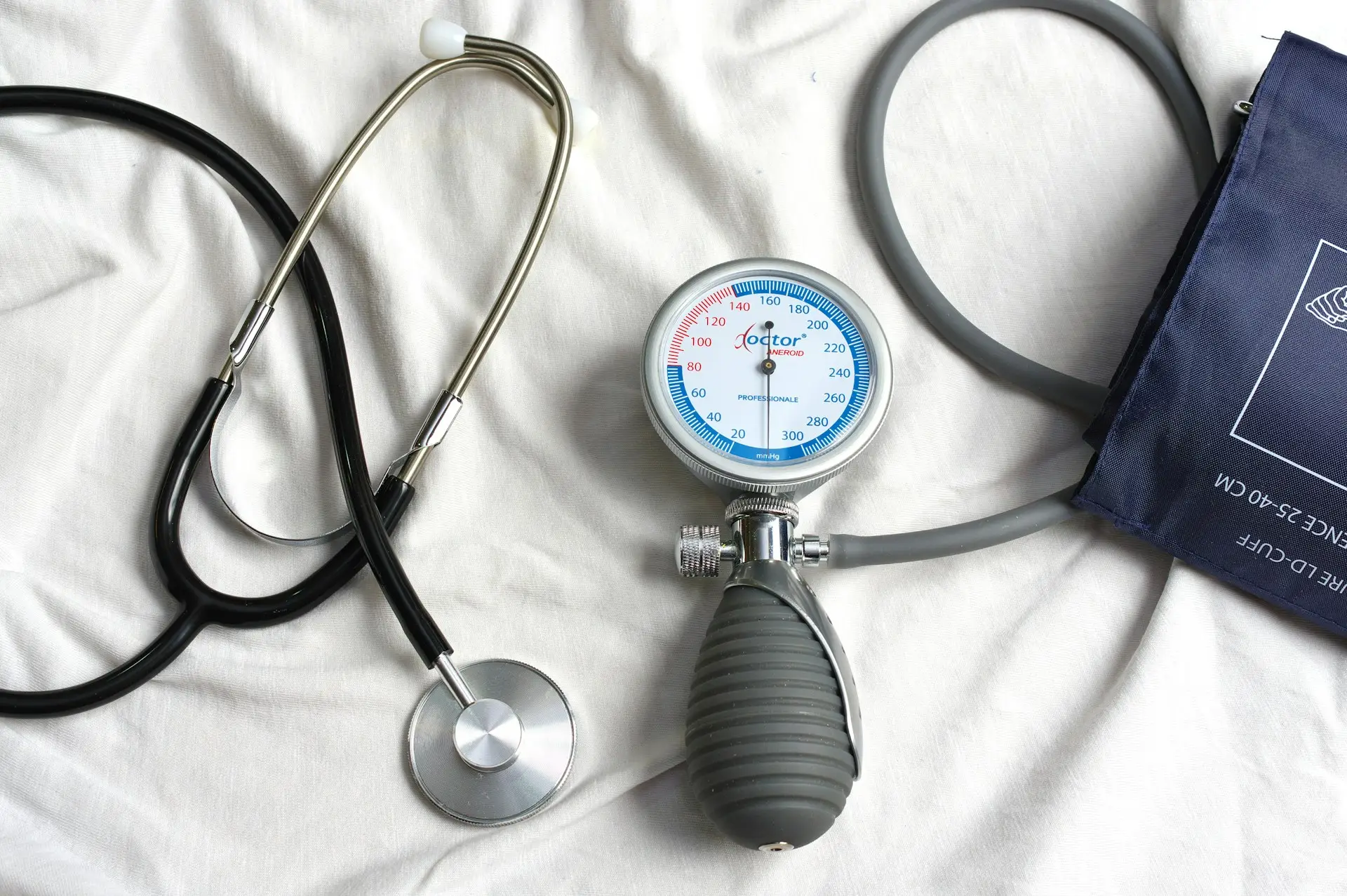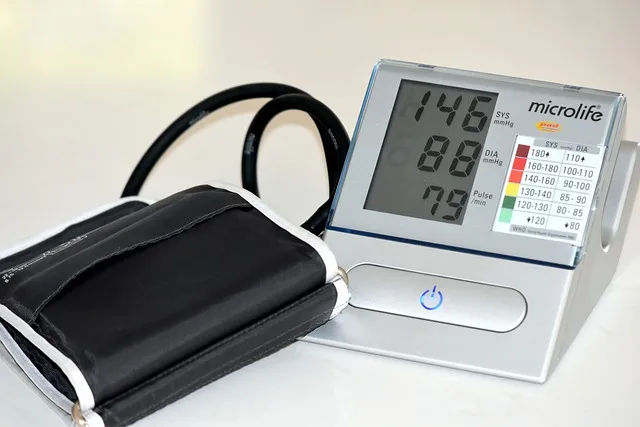Angiotensin-converting enzyme inhibitors, also called ACE inhibitors or ACEIs, are a group of medications that help lower blood pressure, making it easier for the heart to pump blood. They are commonly used to treat high blood pressure, heart failure, and kidney disease.
While generally well-tolerated, ACE inhibitors can still cause side effects, like dry cough and dizziness.
How do ACE inhibitors work?
ACE inhibitors block the angiotensin-converting enzyme, leading to less circulating angiotensin II. Angiotensin-converting enzyme is a chemical mainly found in small blood vessels within the lungs. It changes angiotensin I to angiotensin II, a hormone that raises blood pressure by narrowing (constricting) blood vessels and getting your kidneys to keep more salt and water in the body.
When you take ACE inhibitors, your blood vessels dilate (widen) and your kidneys release more salt and water from the body. These actions lower blood pressure, reduce strain on your heart, and help prevent kidney damage.
Examples of ACE inhibitors
These medications typically end in “-pril”. Examples include:
- Captopril (Capoten)
- Enalapril (Vasotec, Epaned)
- Fosinopril (Monopril)
- Benazepril (Lotensin)
- Enalaprilat (Vasotec)
- Ramipril (Altace)
- Lisinopril (Prinivil, Zestril)
- Quinapril (Accupril)
- Trandolapril (Mavik)
- Perindopril (Aceon, Coversyl)
- Moexipril (Univasc)
All ACE inhibitors can be taken as oral pills, but enalapril and enalaprilat can also be administered into a vein (intravenously).
You can take ACE inhibitors as part of a combined pill that also contains and diuretic (water pill) or a calcium channel blocker. These combinations allow your doctor to manage your condition better without increasing the number of pills you have to take.
What conditions do ACE inhibitors treat?
You may need to take these medications if you:
- Have high blood pressure (hypertension)
- Have heart failure
- Have had a heart attack
- Have kidney disease, especially diabetes-associated kidney disease (diabetic nephropathy)
- Are at high risk of getting a stroke or heart attack
- Have post-transplant kidney inflammation
What are the side effects of ACE inhibitors?
Most people taking them experience mild or no side effects. However, these medications can cause a range of side effects, some of which may be serious. Possible side effects include:
- Angioedema—swelling of the deep layers of the skin and the tissue under it. It typically involves the face, but can be severe enough to affect the throat, tongue, and other body parts.
- Persistent dry cough
- Headache
- Dizziness
- Decline in kidney function
- Low blood pressure (hypotension)
- High blood potassium (hyperkalemia)
- Itchy skin rash
- Nausea, stomach pain, and diarrhea
- Metallic taste or decreased ability to taste
Who shouldn’t take ACE inhibitors?
You need to avoid these medications if you:
- Are pregnant. ACE inhibitors can harm the fetus, potentially causing kidney dysfunction, underdeveloped lungs, skeletal abnormalities, low blood pressure, or even death.
- Are breastfeeding
- Have a past allergic reaction to an ACE inhibitor
- Have a history of angioedema
- Have bilateral renal artery stenosis. This is narrowing of the arteries that supply blood to your kidneys.
What medications can interact with ACE inhibitors?
Medications and supplements you need to take with caution while you’re on ACE inhibitors include:
- Non-steroidal anti-inflammatory drugs (NSAIDs), such as indomethacin and ibuprofen. They can decrease kidney function and raise blood pressure.
- Potassium supplements, potassium-sparing diuretics, and potassium-containing salt substitutes. These can also raise your blood potassium levels.
- Aliskiren (Tekturna, Rasilez) and angiotensin II receptor blockers (ARBs), such as losartan, valsartan, and telmisartan. These blood pressure medications can worsen the side effects of ACE inhibitors.
ACE inhibitors can reduce the body’s ability to clear lithium, a medication used to treat certain mental disorders. This can increase lithium levels, leading to worsened side effects such as confusion, memory problems, excessive urination, hand tremors, and a dry mouth.
How can I take ACE inhibitors safely?
Proper use of these medications can help maximize benefits while minimizing side effects. Here are some tips for safe use:
- Take the medications as prescribed. ACE inhibitors differ in how fast and how long they work. And, your doctor or pharmacist will determine what’s the best dosage and timing for you.
- Seek emergency medical attention if you develop angioedema, especially when it affects your tongue and throat.
- Talk to your doctor if you experience other uncomfortable side effects like dry cough, skin rash, and dizziness. ACE inhibitors can be replaced by other safer medications without disrupting the treatment of your condition.
- Monitor your blood pressure at home to ensure the medication is working effectively and not causing it to drop too low. Read this article if you need help understanding your blood pressure readings. Keep in mind that the antihypertensive effect of ACE inhibitors develops gradually over a few weeks.
- Stand up slowly from a sitting or lying position to prevent feeling dizzy or fainting.
- Inform your doctor if you’re pregnant or planning to be.
- Show up to your scheduled lab appointments. People on ACE inhibitors need to have their electrolyte levels and kidney function checked regularly. These tests help your doctor to determine whether your dosage requires adjustment or if a different medication may be necessary.
What is the difference between ACE inhibitors and angiotensin receptor blockers (ARBs)?
ACE inhibitors and ARBs are both used to treat high blood pressure, heart failure, and kidney disease. Even though these classes of medications are equally effective, ACE inhibitors are often prescribed first.
While ACE inhibitors block the enzyme that converts angiotensin I to angiotensin II, ARBs block angiotensin II from binding to its receptors, preventing its effects without interfering with its production.
ARBs are less likely than ACE inhibitors to cause dry cough and angioedema. This is because the enzyme blocked by ACE inhibitors also breaks down bradykinin, a protein that can build up and trigger these effects.
The takeaway
ACE inhibitors help with lowering blood pressure, protecting the heart, and preventing kidney damage. They work by relaxing blood vessels but can cause side effects like a persistent dry cough, dizziness, and, in rare cases, swelling (angioedema). Regular monitoring and following your doctor’s advice can help ensure safe use.
For those who cannot tolerate ACE inhibitors, ARBs offer a good alternative with fewer side effects. If you experience severe reactions or have concerns about your medication, consult your doctor.












